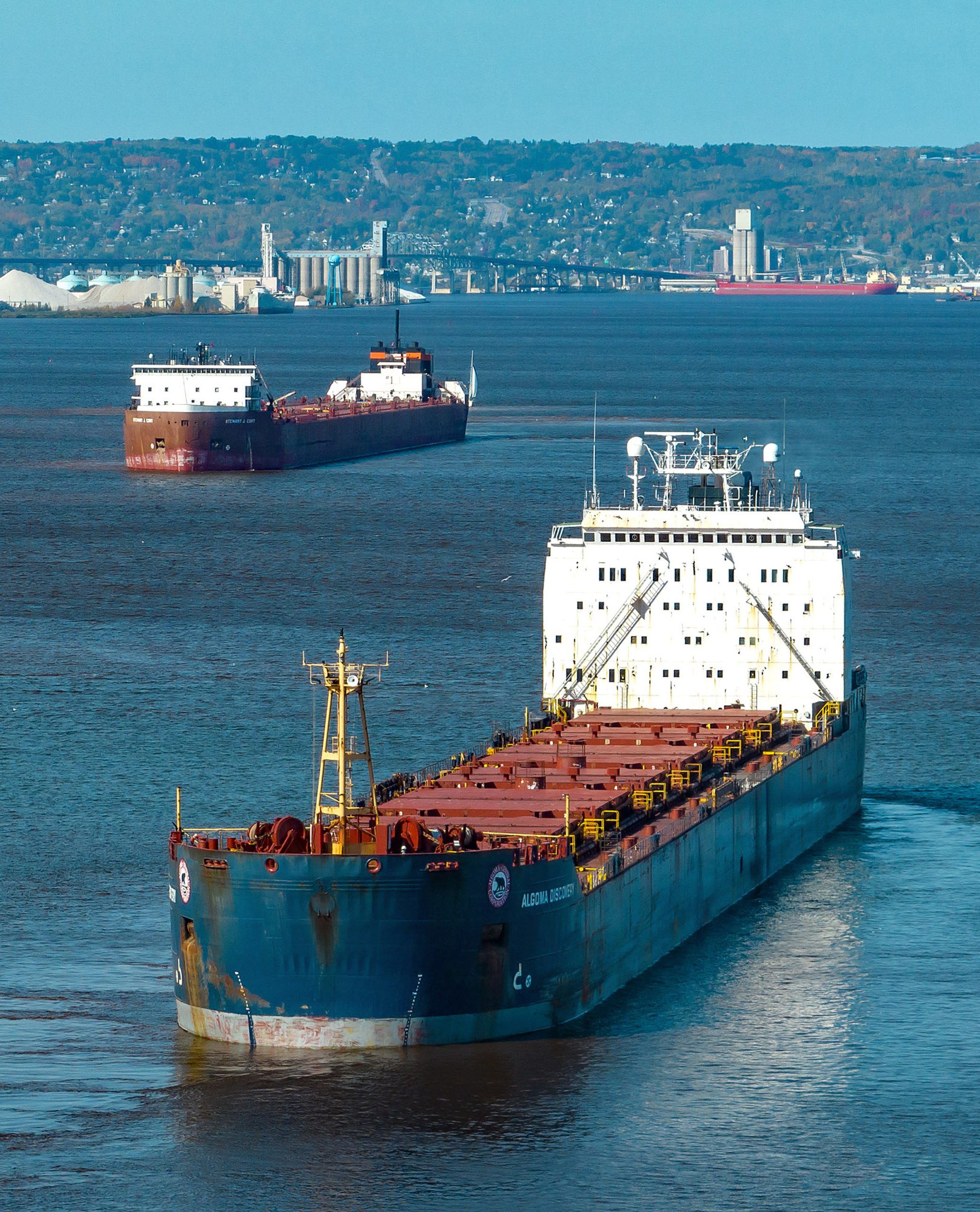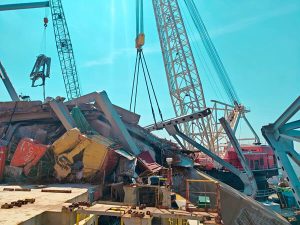By Leo Ryan, Editor
The American Great Lakes Ports Association (AGLPA), which represents 15 ports, today issued a blistering statement qualifying as “an outrage” what it called the “casual pace” allegedly displayed by the parties and the Canadian government” in addressing the resolution of a strike launched Sunday by 360 unionized Canadian employees on the St Lawrence Seaway.
Following the collapse of negotiations, mainly over wage issues aligned to inflation, resumed talks have been scheduled for Friday morning between representatives of the Canada’s St. Lawrence Seaway Manament Corporation and the Unifor union in the presence of a federal mediator.
“This is not just any labor dispute; it is a labor dispute affecting an international commercial waterway owned by the Canadian and U.S. Governments and operated in the public interest,” the AGLPA said.
“Last Saturday night at midnight, the employees of the St. Lawrence Seaway Management Corporation (SLSMC) went on strike, shutting down Canadian portions of the St. Lawrence Seaway, a binational waterway connecting the Great Lakes to the Atlantic Ocean,” the AGLPA recalled before adding: “That night, the flow of commerce through the waterway ceased, resulting in a disruption of trade to our ports, lost jobs in our communities, and millions in economic harm compounding every day.
“At our ports, stevedores and longshoremen have no ships to unload, marine pilots are out of work, trucking companies have no deliveries to make, and tugboats are idle. Our customers are making plans now to reroute their products through east coast ports.”
“Slap in the face” to Americans and Canadians
The U.S. ports group then charged: “Despite these negative impacts, there seems to be no urgency to resolving the strike. The parties did not meet Sunday, nor Monday. They did not meet Tuesday. They have no plans to meet today, nor tomorrow.
“The casual pace at which the parties and the Canadian Government are approaching the resolution of this crisis is an outrage. It is a slap in the face to the many Americans and Canadians who are suffering job loss.”
Continuing, the AGLPA said: “While the SLSMC and its union are at the negotiating table, their dispute is negatively affecting hundreds of companies and thousands of people whose livelihood depends on the freight that moves through the waterway. None of these companies have a seat at the table. None of their employees have a voice, yet they suffer.
“Despite claims that they are “engaged,” the Canadian Labour and Transport Ministers appear to be slow-walking the resolution of this strike. While we don’t take sides in the dispute, we do demand that the Government of Canada demonstrate greater urgency in bringing this to an end.”
In conclusion, the AGLPA stated: “A 2020 economic analysis determined that a two-week closure of the Seaway would result in the loss of more than 19,000 jobs in the United States and Canada. With a week now wasted, and many days of negotiations still pending, these job losses are certain. Shame!”
Ports belonging to the AGLPA include Burns Harbor, Chicago, Cleveland, Detroit, Duluth, Erie, Milwaukee, Monroe, Superior and Toledo.
Deb Deluca comment from Port of Duluth
“This situation affects oceangoing activity for the entire Great Lakes-St. Lawrence Seaway System, which makes it everyone’s concern,” said Deb DeLuca, executive director of the Duluth Seaway Port Authority.
As a result of the strike, multiple ships loaded with exports are presently unable to exit the Great Lakes-St. Lawrence Seaway System, and a growing queue of inbound ships are unable to enter or pass through specific segments.
“This interruption of Seaway operation has immediate and longer-term consequences for Great Lakes ports, the entire Seaway System, and countries around the world hungry for our exports, especially now, during peak grain harvest season,” said Ms. DeLuca who called on both parties to reach a settlement quickly to re-open the Seaway.
“System stakeholders, including the Port of Duluth-Superior, its terminals, workers and cargo owners, are experiencing economic and reputational harm as a result of this impasse,” she declared. “Additionally, countries that rely on our grain exports are left waiting and hungry. The toll will continue mounting until the System reopens.”
(Photo by Gus Schauer of Port of Duluth)





